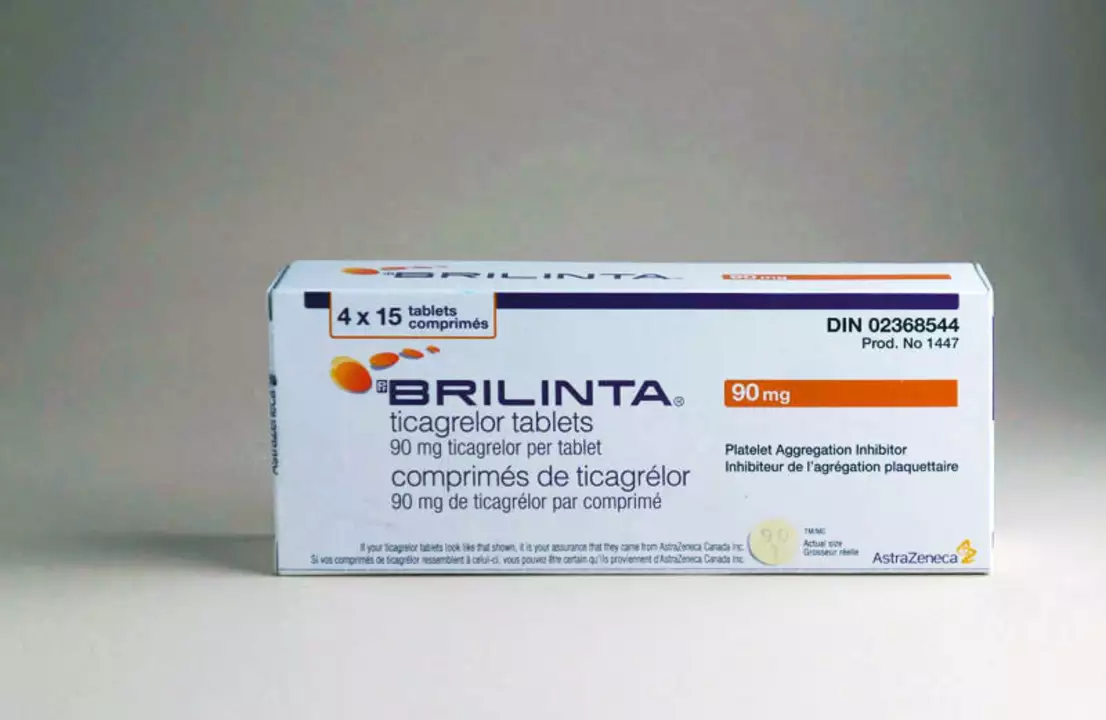Ticagrelor: What It Is, Why You Might Need It, and How to Save Money
If your doctor mentioned ticagrelor, you probably heard words like "antiplatelet" or "blood clot prevention." In simple terms, ticagrelor is a pill that stops platelets in your blood from sticking together. Doctors often prescribe it after a heart attack, an unstable angina episode, or when they place a stent to keep an artery open.
Unlike older drugs such as clopidogrel, ticagrelor works faster and stays active longer. That means you get stronger protection against new clots without waiting days for the medicine to kick in. Most patients take one 90 mg tablet twice a day, with food or water—nothing fancy.
How Ticagrelor Works and When It’s Used
Ticagrelor blocks a receptor called P2Y12 on platelets. By blocking this spot, the drug stops the chemical signal that tells platelets to clump. The result is smoother blood flow and a lower chance of a blockage forming again.
Typical situations for ticagrelor include:
- After a heart attack (myocardial infarction) to keep another one from happening.
- When a doctor puts in a coronary stent – the pill helps the stent stay clear.
- For certain patients with acute coronary syndrome who need strong antiplatelet action.
If you’re on blood thinners like warfarin or have a history of bleeding, your doctor will weigh risks carefully. Common side effects are shortness of breath, headache, and mild bruising. Serious bleeding is rare but possible, so call your doctor if you notice unusual gum bleeding, dark stools, or severe nosebleeds.
Buying Ticagrelor Cheap and Safe
Brand‑name ticagrelor (Brilinta) can cost a lot, especially without insurance. Here are practical steps to lower the price:
- Check for generics. Some regions now offer generic versions that match the brand in quality but cost 30‑50% less.
- Use reputable online pharmacies. Look for sites with a valid pharmacy license, clear prescription requirements, and customer reviews. CheapMeds.com, RxConnected, and similar platforms often list discounted prices.
- Ask your doctor about coupons or patient assistance programs. Many manufacturers run savings cards that cut the out‑of‑pocket cost dramatically.
- Order a 90‑day supply. Most pharmacies give a price break for bulk orders, and you won’t have to worry about monthly refills.
Before you click “buy,” verify the pharmacy’s address, phone number, and whether they require a valid prescription. Avoid sites that promise “no prescription needed” – those are usually scams selling counterfeit pills.
If you travel abroad or live in a country with different drug pricing, you can still get ticagrelor legally by importing it through a licensed pharmacy that ships internationally. Always keep the original prescription handy; customs may ask for proof.
In summary, ticagrelor is a powerful tool to prevent heart‑related clotting events, but the price tag can be steep. By understanding how it works, watching for side effects, and using trusted discount channels, you can stay protected without breaking the bank.

The Role of Ticagrelor in Reducing the Risk of Cardiovascular Death
As a blogger who loves exploring health-related topics, I recently came across the significant role of Ticagrelor in reducing the risk of cardiovascular death. Ticagrelor, a powerful antiplatelet medication, has proven effective in preventing blood clots and minimizing the chances of heart attacks and strokes in patients with acute coronary syndrome. Its unique mechanism of action ensures a faster and more potent platelet inhibition, setting it apart from other conventional treatments. Furthermore, studies have shown that it can reduce the risk of cardiovascular death by up to 21% compared to other medications. In conclusion, the introduction of Ticagrelor in cardiovascular care has been an essential step towards improving patient outcomes and saving lives.
